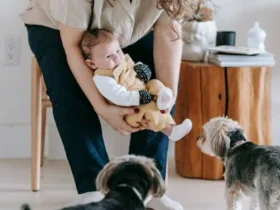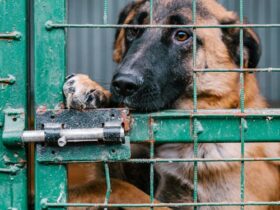Bringing a puppy into your home is an exciting adventure, but it also comes with its own set of challenges. One of the most effective ways to ensure your puppy thrives and that you maintain your sanity is to establish a consistent daily schedule. A well-structured routine benefits both you and your puppy by providing predictability, aiding in training, and supporting overall well-being. Here’s how you can create a daily schedule that will help keep your puppy happy and make your life easier.
1. Understand Your Puppy’s Needs
Age and Development
Your puppy’s age plays a crucial role in determining their daily schedule. Puppies have different needs depending on their stage of development. For example:
- 8-12 Weeks: Need frequent feedings (3-4 times a day) and short play and training sessions.
- 3-6 Months: Transition to 2-3 meals a day and require longer periods of play and socialization.
- 6-12 Months: Can typically handle 2 meals a day and longer periods of training and exercise.
Energy Levels and Breeds
Consider your puppy’s breed and energy levels. High-energy breeds like Border Collies or Labradors will require more exercise and mental stimulation compared to lower-energy breeds like Bulldogs or Basset Hounds.
2. Create a Daily Routine
Morning Routine
- Wake-Up and Potty Break: Start the day with a morning potty break. Puppies have small bladders and need to relieve themselves frequently.
- Feeding: Provide the first meal of the day. Consistent feeding times help regulate your puppy’s digestion and energy levels.
- Morning Exercise: Incorporate a short walk or playtime to burn off some energy and stimulate your puppy’s mind.
Midday Routine
- Potty Break: Ensure there’s a potty break around midday to prevent accidents, especially if you’re away from home.
- Training Session: A short training session can reinforce basic commands and provide mental stimulation.
- Playtime: Engage in interactive play to keep your puppy entertained and active.
Afternoon Routine
- Potty Break: Another opportunity for your puppy to relieve themselves.
- Rest Time: Puppies need plenty of sleep. Provide a comfortable space for napping and quiet time.
- Socialization: If possible, introduce your puppy to new experiences, people, or other dogs to support social development.
Evening Routine
- Dinner: Serve the evening meal around the same time each day to maintain consistency.
- Evening Exercise: A longer walk or play session can help expend remaining energy and prepare your puppy for bedtime.
- Potty Break: A final potty break before bedtime to ensure a good night’s sleep.
Nighttime Routine
- Calm Wind-Down: Establish a calming pre-bedtime routine, such as gentle play or quiet time, to signal that bedtime is approaching.
- Crate Training: If you’re using a crate, make it a positive and secure place for your puppy to sleep. Ensure they have a comfortable bed and toys.
3. Incorporate Training and Socialization
Training Sessions
- Consistency: Incorporate short, positive training sessions into your daily routine. Consistency helps reinforce good behavior and aids in learning.
- Reinforcement: Use treats, praise, and toys to reward your puppy for following commands and exhibiting desired behaviors.
Socialization Opportunities
- Controlled Exposures: Expose your puppy to different environments, people, and other animals in a controlled manner to build confidence and prevent fear-based behaviors.
- Positive Experiences: Ensure that socialization experiences are positive and rewarding to encourage your puppy to embrace new situations.
4. Addressing Potty Training
Frequent Breaks
- Regular Potty Breaks: Puppies need frequent potty breaks, especially during the initial training phase. Take them out after eating, drinking, playing, or waking up.
- Crate Training: Use a crate to help with potty training. Puppies naturally avoid soiling their sleeping area, so a properly sized crate can encourage them to hold their bladder.
Positive Reinforcement
- Praise and Treats: Immediately reward your puppy with praise and treats after they go potty outside. This reinforces the desired behavior and helps them understand where they should go.
5. Monitor and Adjust the Schedule
Observe and Adapt
- Behavior Changes: Monitor your puppy’s behavior and adjust the schedule as needed. If you notice signs of boredom or anxiety, it might be time to tweak the routine.
- Growth and Development: As your puppy grows, their needs will change. Be prepared to adjust the schedule to accommodate their evolving requirements.
Flexibility
- Adaptability: While consistency is important, be flexible and willing to make changes as your puppy’s needs evolve. Life is unpredictable, and your routine should be adaptable to both your and your puppy’s needs.
6. Ensure Proper Nutrition and Health
Balanced Diet
- Quality Food: Provide a balanced and nutritious diet tailored to your puppy’s age, breed, and size. Consult your veterinarian for recommendations on the best food for your puppy.
- Regular Feeding Times: Stick to regular feeding times to maintain consistency and support your puppy’s digestion and energy levels.
Health Check-Ups
- Vet Visits: Schedule regular veterinary check-ups to monitor your puppy’s health and address any concerns. Keep up with vaccinations, deworming, and other preventive care.
7. Plan for Unexpected Events
Emergency Preparedness
- Contingency Plans: Have a plan in place for unexpected events, such as changes in work schedule or emergencies. Consider arranging for a dog walker or pet sitter if needed.
- Emergency Kit: Keep an emergency kit with essential supplies, including first aid items, food, and medications, to ensure you’re prepared for any situation.
8. Maintain Your Well-Being
Self-Care
- Balance: Ensure you maintain a balance between caring for your puppy and taking care of yourself. Allocate time for relaxation and self-care to avoid burnout.
- Support Network: Build a support network of friends, family, or local pet communities to share experiences and seek advice.
Stress Management
- Stay Calm: Puppies can be demanding and require patience. Practice stress management techniques, such as deep breathing or taking short breaks, to keep yourself calm and focused.










Leave a Reply